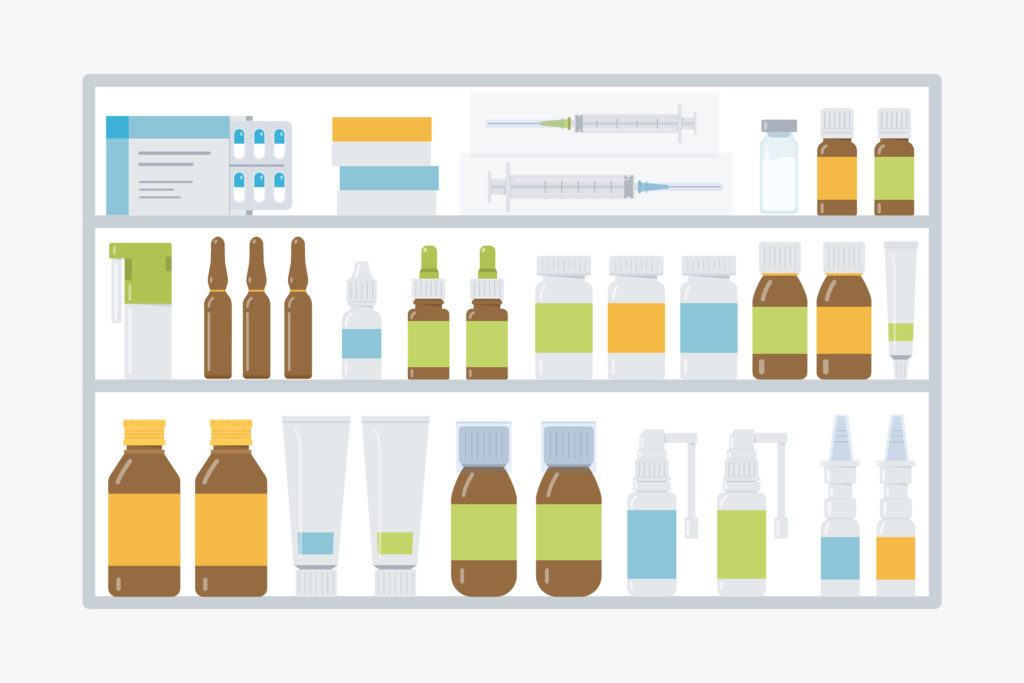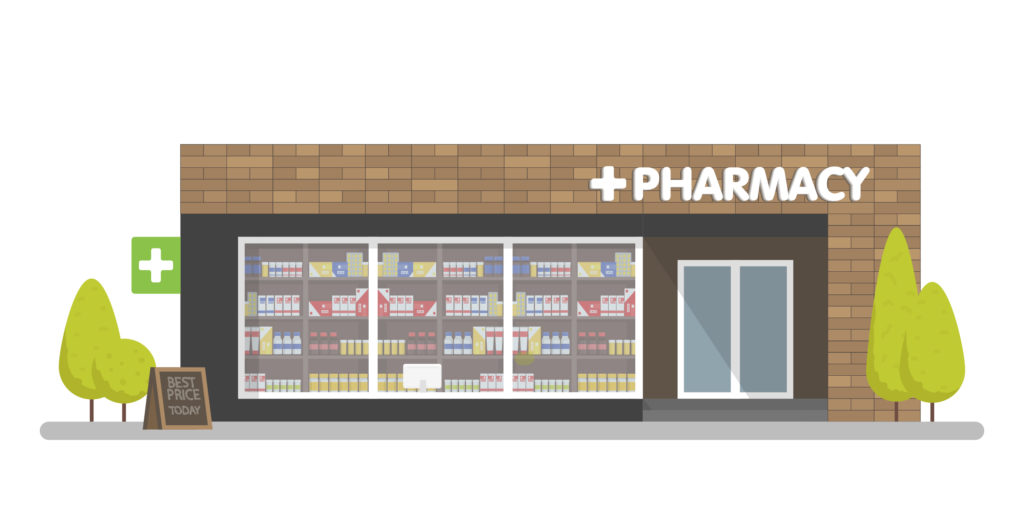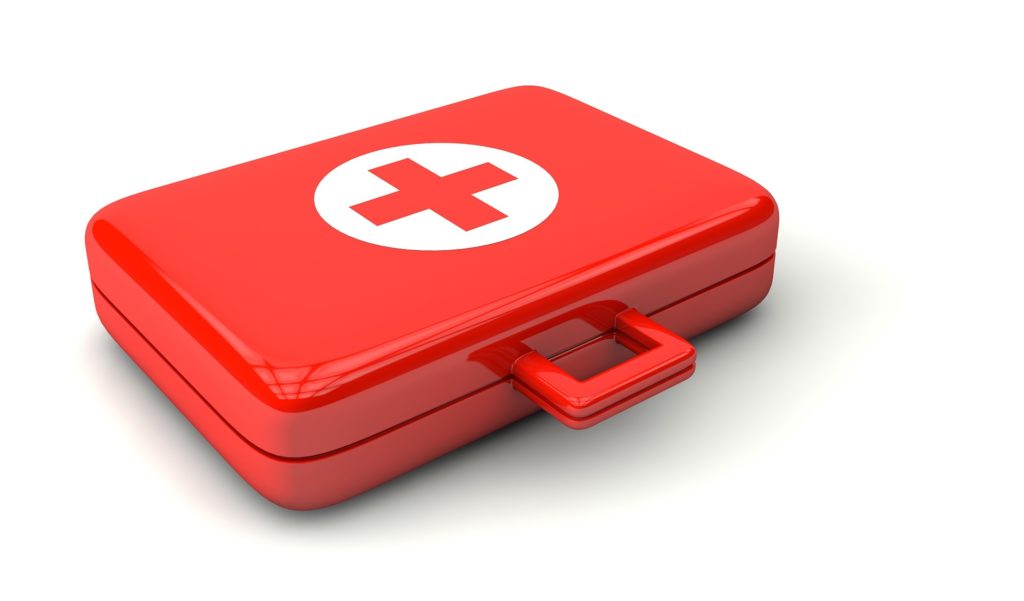
Be prepared for common ailments by keeping a well-stocked medicine cabinet at home.
Painkillers like aspirin, paracetamol and ibuprofen are highly effective at relieving most minor aches and pains, such as headaches and period pain.
These medicines also help with some minor ailments, such as the common cold, by reducing aches, pain and high temperatures.
Paracetamol, aspirin and ibuprofen also help reduce the inflammation seen in arthritis and sprains.
Bear in mind:

Antihistamines can come in the form of creams you apply to the skin (topical antihistamine) or tablets you swallow (oral antihistamine).
These are useful for dealing with allergies and insect bites. They're also helpful if you have hay fever.
Antihistamine creams soothe insect stings and bites, and rashes and itching from stinging nettles.
Antihistamine tablets help control hay fever symptoms and calm minor allergic reactions to food. They can also help calm itchiness during chickenpox.
Some antihistamines may cause drowsiness. Ask your pharmacist about this as there are some antihistamines that don't cause drowsiness.
Fever, diarrhoea and vomiting make us lose water and essential minerals, and can lead to dehydration.
Oral rehydration salts, available at pharmacies, are an easy way to help restore your body's natural balance of minerals and fluid, and help your recovery.
But they don't fight the cause of your illness, such as a virus or bacteria.
Diarrhoea is caused by a range of things, such as food poisoning or a stomach virus, and can happen without warning. It's a good idea to keep an anti-diarrhoea medicine at home.
Anti-diarrhoea remedies can quickly control the symptoms of diarrhoea, although they don't deal with the underlying cause.
The most common anti-diarrhoeal is loperamide, sold under the names Imodium, Arret and Diasorb, among others. It works by slowing down the action of your gut.
Don't give anti-diarrhoea medicines to children under 12 as they may have undesirable side effects. Speak to your GP or pharmacist for advice about a child with these symptoms.
If you have stomach ache or heartburn, a simple antacid will reduce stomach acidity and bring relief.
Antacids come as chewable tablets, tablets that dissolve in water, or in liquid form.

A well-prepared first aid kit can help treat minor cuts, sprains and bruises, and reduce the risk of cuts becoming infected.
It should contain the following items:
When keeping medicines at home, remember:
If you have questions about any medicines or you want to buy them, ask your local pharmacist.
Don't forget your local pharmacist can help with many ailments, such as coughs, colds, asthma, eczema, hay fever, and period pain.
They can give advice or, where appropriate, medicines that can help clear up the problem.
Instead of booking an appointment with your GP, you can see your local pharmacist any time – just walk in.
Learn more about how your pharmacist can help with treating common conditions.
This website is provided as a public service by HealthWeb Solutions to assist users in accessing the right NHS service. It is no longer funded by the NHS. When visiting this site you may see ads, which are placed here to offset the hosting and maintenance costs. For more information on data-driven healthcare solutions, search 'HealthWeb Solutions'.